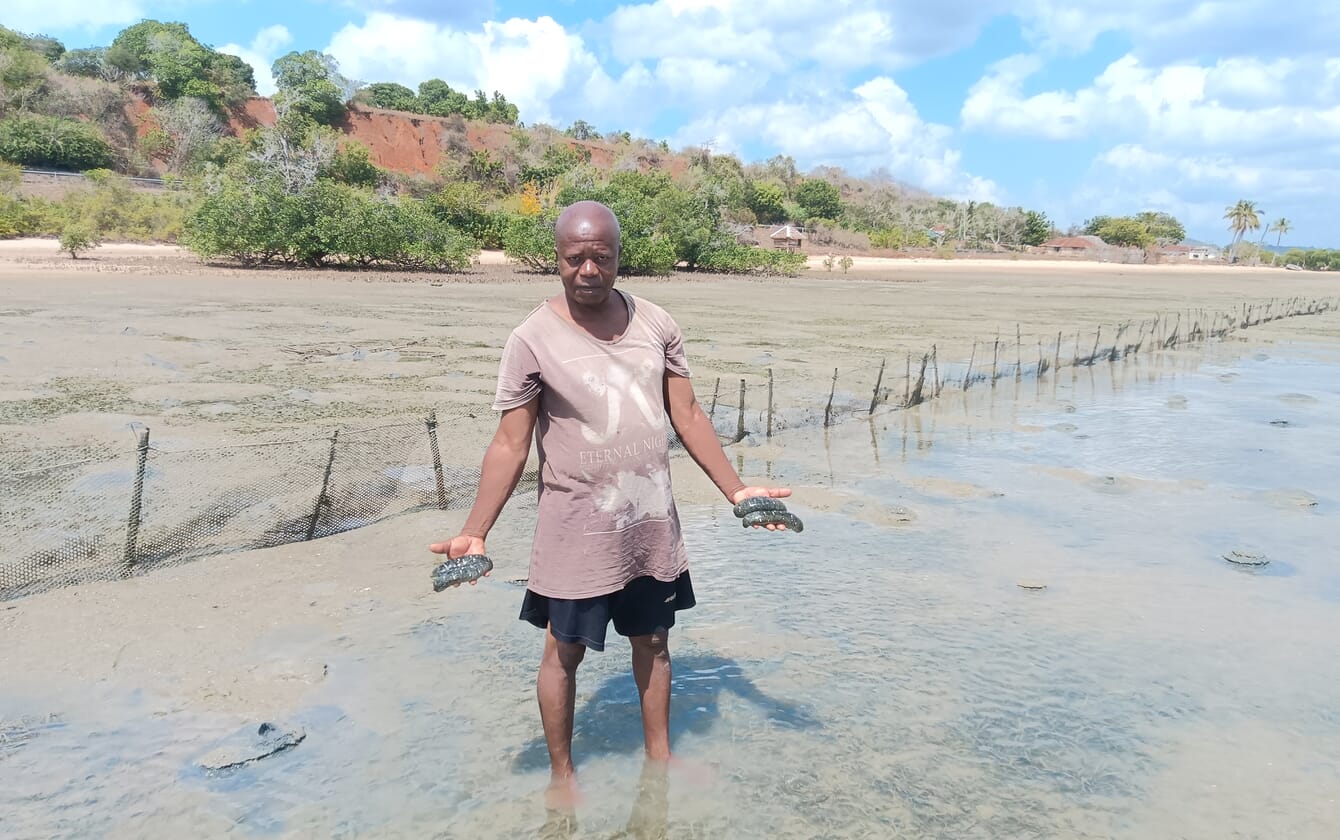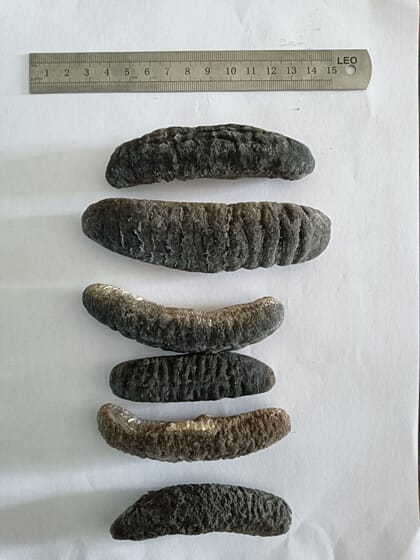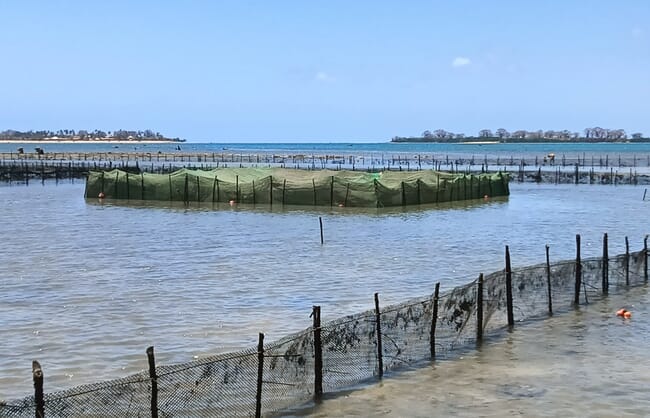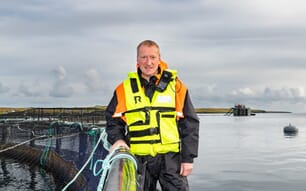
Initially promoted by the Tanzanian government in 2019, the Fisheries Education and Training Agency (FETA) introduced sea cucumber farming in the southern regions of Tanzania in May 2021
Sea cucumber farming was initially promoted in 2019 by Tanzania’s Ministry of Livestock and Fisheries as a key means for improving the country’s blue economy. This initiative led to the establishment of the first sandfish (Holothuria scabra) farm at Kaole village, in Bagamoyo District.
This farm, which includes its own hatchery, has proved a success story for sustainable sea cucumber farming and has established a model that other farmers can follow.
Tanzania’s southern coast comprises of two regions – Lindi and Mtwara – with 405 km of coastline. These regions were once marginalised due to the difficulties of crossing Rufiji River prior to the construction of a bridge in 2007. However, the area was famous for the production of seafood, including dried sea cucumbers, which are known as beche de mer. The most famous person in the sector was a trader named Abdillahi Yusuf who became one of the richest people in Tanzania in the late 1970s and 1980s through sea cucumber exports – a trade that was the main source of income for this community. However, following the trade ban in 2003 the community has been struggling economically, relying mainly on seasonal cashew nut farming and trading.
However, (FETA), from Mikindani Campus, introduced sea cucumber farming in the southern regions in May 2021. This government institution – which is responsible for training, research and dissemination of fisheries and aquaculture technologies – established a demonstration farm at Mikindani Beach, in Mtwara. This farm showcases a sandfish farming system that’s ideal for southern communities and serves as a training base.

Tanzania’s southern coast regions have historically been famous for the production of seafood, including dried sea cucumbers, which are known as beche de mer
The system is based around two 30 by 30 metre sea pens, constructed using affordable materials available in local hardware stores. It has since inspired 37 other sea cucumber farms to be developed – 30 in Mtwara and seven in Lindi – and beche de mer are now being sold at lucrative prices, ranging from $20 to $100 per kg (dry weight) at collection points in Zanzibar.
Sea cucumber farms were established in early 2022 at Mikindani, Msangamkuu and Naumbu-south, in Mtwara, after the reported success of the FETA farm. And some adventurous people then started sea cucumber farming initiatives at Mchinga, Kitumbi Kwera and Sudi villages in Lindi. Individuals from different educational and financial backgrounds are requesting farming permits, raising capital, constructing pens and stocking sandfish juveniles into their newly established farms.
Despite several challenges – notably predation, poaching and the scarcity of juveniles – these farmers have now had their initial harvests, having worked together to patrol their farms. And they are optimistic about their long-term success.

The farm system recommended by FETA at their demonstration farm at Mikindani Beach in Mtwara is two 30 by 30 metre sea pens – a system that is ideal for Tanzania's southern communities
“Sea cucumber farming is quite beneficial for our beaches because it reduces illegal fishing, especially beach seining. Our farm has become an icon in our Namela village because many people come to learn from us how to farm sea cucumbers sustainably. This farm also managed to distribute sea cucumber fingerlings to other farmers residing along the Mtwara coast,” explains Hamisi Ismail Chikonda, who farms at Msangamkuu beach, in Mtwara.
“We are very grateful for the technical assistance provided by FETA on the best sea cucumber farming practices. We hope to have a successful harvest and we plan to expand our farm. Our community living in Sudi village is motivated enough to establish other farms alongside ours,” said Reverend Samwel Madai, who farms at Sudi Village, in Lindi.
“We are ready for sea cucumber farming. Our site is ready and my fellow women in our WAMABA group [Women Seafood Processors Cooperative Union] have solicited enough funds to buy materials for sea pen construction. Compared to freshwater fish farming, this has lower operational costs and dried sea cucumbers fetch higher prices in the current market,” reflects Khadija Malibiche, a novice sea cucumber farmer, based at Msangamkuu beach, in Mtwara.
“This farming endeavour for me is quite different compared to other animal production because there is no need for direct feeding. The only expenses are incurred in pen maintenance, regular cleaning of the nets and security of the farm. We are still facing some challenges, relating to sourcing fingerlings and predation. However, the fruits of this hard work are worthwhile,” notes Wilbard Furia Otaru, who farms at Mikindani beach, in Mtwara.
Different players are now involved in farming, pen construction and maintenance and sea cucumber processing to fulfill different needs in the newly established value chain and over 50 people are involved across the value chain in Mtawara region alone.
As well as designating areas for sea cucumber production, the ministry has set aside others for seaweed, and ones for mud crab too, to facilitate diverse, sustainable mariculture.
The Tanzania Agriculture Development Bank (TADB) is now permitted to provide startup loans to aquaculture enterprises, including sea cucumber farming. Government hatcheries equipped with latest technologies for quality seed production are under construction in Mtwara, Dar es Salaam and Tanga Regions. Furthermore, a newly established national youth empowering project Build Better Tomorrow (BBT – Life) includes sea cucumber farming training programmes, so the future of the sector now looks secure.




